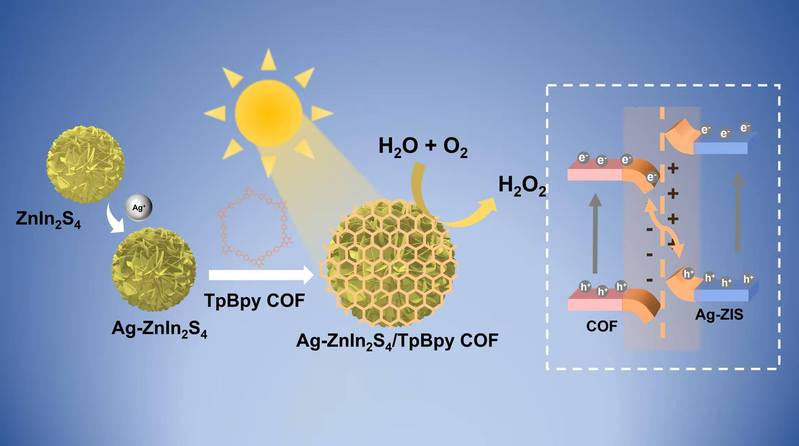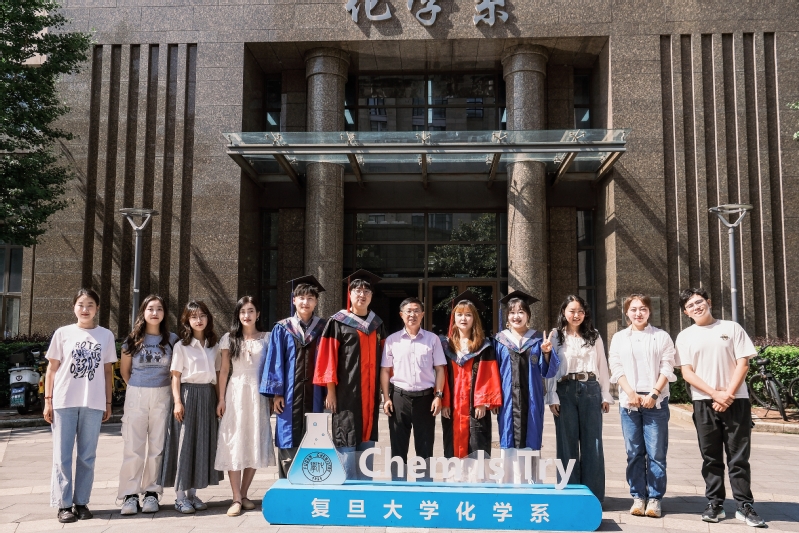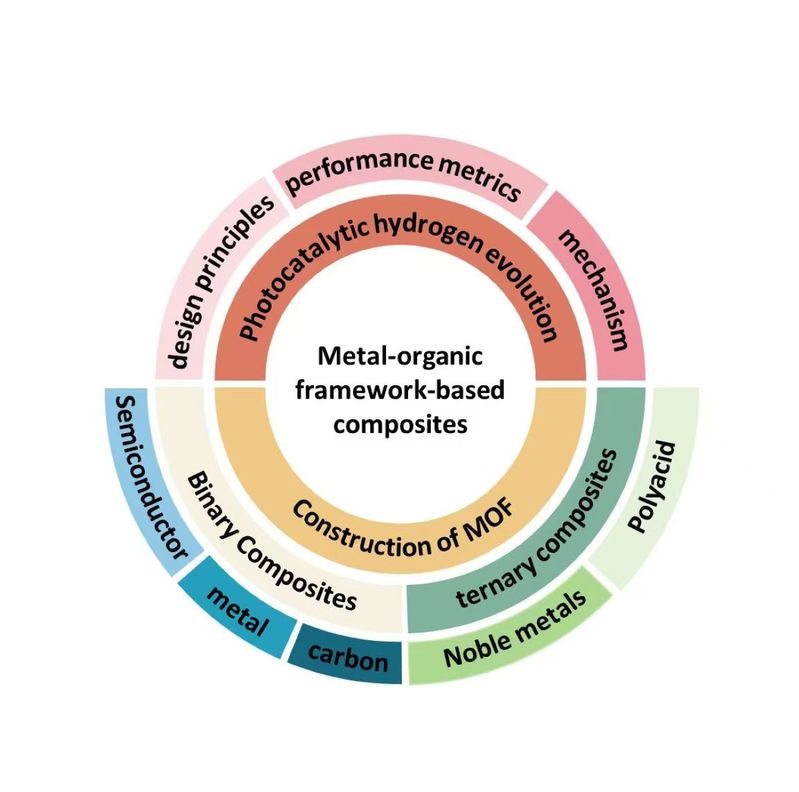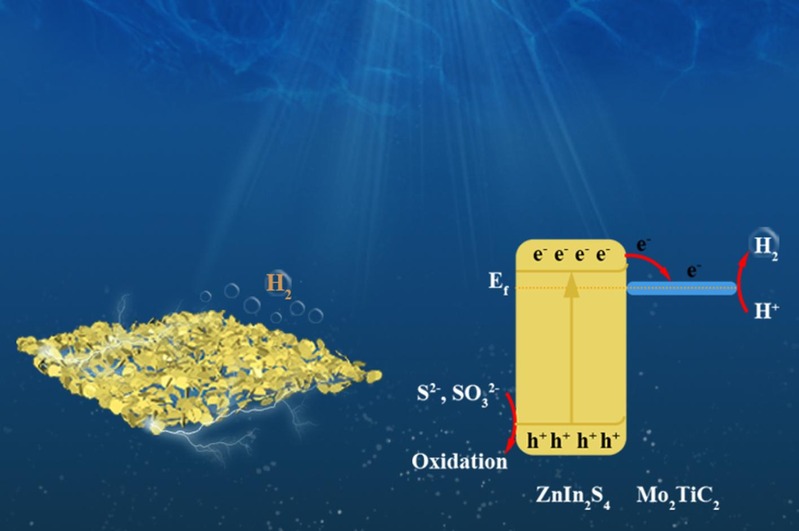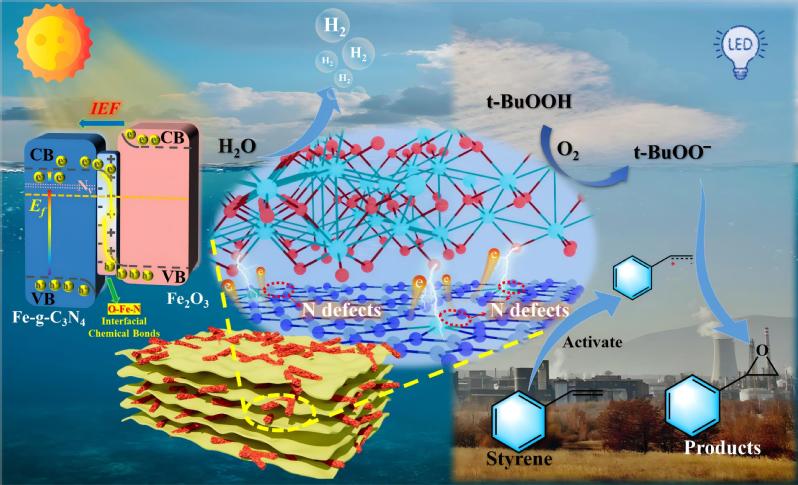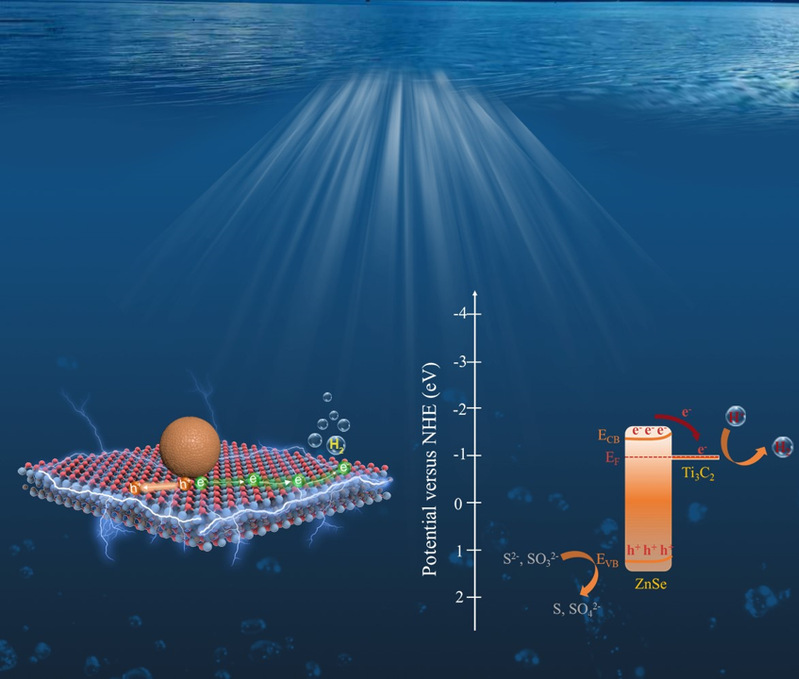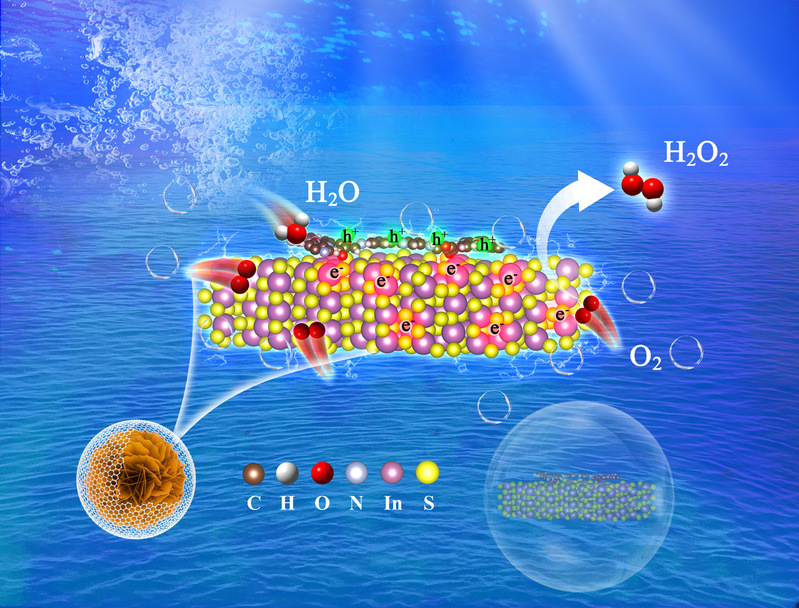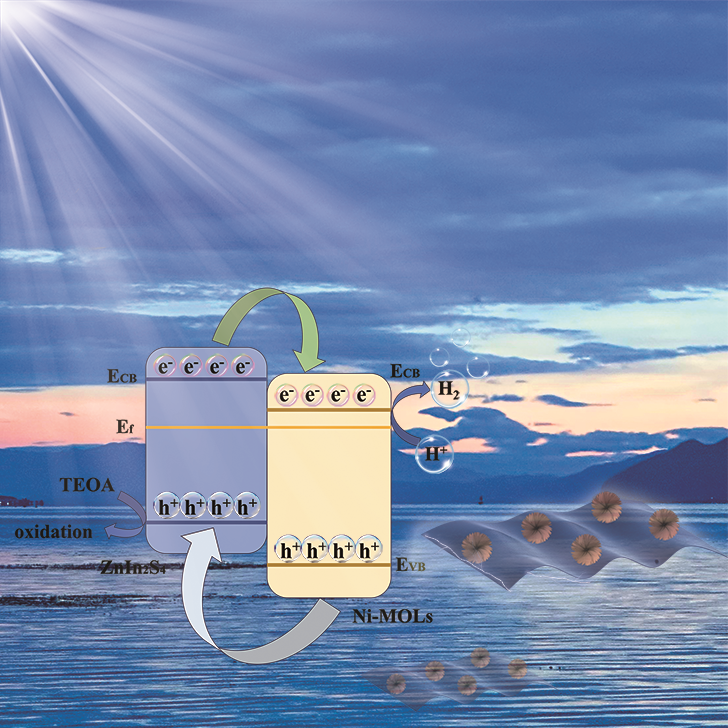发布于 2025-09-18
![]()
Covalent organic frameworks (COFs), characterized by efficient light absorption and highly tunable electronicstructures, exhibit substantial promise for photocatalytic hydrogen peroxide (H2O2) production. To solve theproblem of severe photogenerated carrier recombination, the researchers proposed to construct step-scheme (S-scheme)heterojunctions by combining COFs with metal sulfides (MS) to achieve effective separation anddirectional transfer of photogenerated electrons and holes. Herein, we de
发布于 2025-06-27
![]()
祝2025届全体毕业生毕业快乐!
发布于 2025-06-27
![]()
The development of metal–organic framework (MOF)-based composites for photocatalytic hydrogen evolution has garnered significant attention due to their tunable structures, high surface area, and abundant active sites. Recent advancements focus on enhancing light absorption, charge separation, and catalytic efficiency through strategies such as ligand functionalization, metal doping, heterojunction formation, and plasmonic coupling effects. For instance, modifications with Ir (III) complexes and
发布于 2025-06-27
![]()
Covalent triazine frameworks (CTFs) are a class of porous organic semiconductors containing a large number of triazine units, which gives them many properties suitable for photocatalysis, such as high porosity, good tunability, and excellent chemical stability. However, it is difficult to achieve high activity, stability, and selectivity at the same time using a single CTF in a specific catalytic reaction. Therefore, it is necessary to find ways to combine CTFs with other materials to improve th
发布于 2025-04-21
![]()
As a novel two-dimensional (2D) material with superior electrical conductivity, Mo2TiC2 MXene has been synthesized and applied in the fields of supercapacitors, lithium batteries, and electrocatalysis. Moreover, Mo2TiC2 MXene exhibits significant potential in photocatalytic processes due to its excellent light absorption and electron acceptance properties. Consequently, a few-layered Mo2TiC2 MXene with a large lamellar structure was designed and synthesized using etching and intercalation method
发布于 2025-04-21
![]()
The rational design of S-scheme heterojunctions holds significant potential for efficient photocatalytic energy conversion, attributed to their enhanced carrier separation efficiency and high redox capacity. Nevertheless, achieving precise control and transfer dynamics in S-scheme heterojunctions remains a substantial challenge. Herein, a unique architecture is devised featuring porous rod-shaped Fe2O3 particles loaded onto Fe single-sites modified g-C3N4 nanosheets via single-sites mediated het
发布于 2025-04-02
![]()
Artificial photosynthesis of H2O2 from inexhaustible seawater is a desirable energy production strategy, but substantial challenge. Herein, we present the Nb2C quantum dots anchored on pyrene-based covalent organic framework (Nb2C QDs@PY-DHBD-COF, NQPD-x) heterostructures for efficient non-sacrificial H2O2 photosynthesis directly from air and seawater. The optimal NQPD-3 catalyst achieves an impressive H2O2 production rate of 3560 μmol g- 1 h- 1, and apparent quantum yield of 12.8 % at 400 nm to
发布于 2025-04-02
![]()
Traditional photocatalysts often have limited efficiency due to the high recombination rate of photogenerated electron-hole pairs. In this work, we synthesized 3D/2D ZnSe-MXene Schottky heterojunctions by an in situ electrostatic self-assembly method. Notably, the 3% MXene-ZnSe composite exhibited an optimized photocatalytic hydrogen production rate of 765.0 μmol g 1 h 1, about 1.6 times higher than that of pristine ZnSe. MXene’s high conductivity and large surface area enhance catalytic perform
发布于 2024-11-15
![]()
Utilizing of oxygen and water for hydrogen peroxide (H2O2) production presents an attractive approach for solarto-chemical energy conversion. The rapid recombination of charge carriers generated by individual covalent organic frameworks (COFs) remains a major limitation in the field of H2O2 photoproduction. In this work, we developed binary heterojunction photocatalysts by facilely combining bipyridine-based COF (COF-TpBpy) with flower-like In2S3 nanosheets using an in-situ solvothermal method.
发布于 2024-11-15
![]()
Photocatalytic water splitting for hydrogen production is a sustainable and environmentally friendly technology. However, the rapid recombination of photo-induced electrons and holes results in low hydrogen production activity of photocatalysts. Constructing low-cost and high-efficiency heterojunctions is an imperative strategy to address the current challenges in photocatalytic hydrogen production. This study presents a novel binary heterojunction photocatalyst constructed of ZnIn2S4 nanoflower
 Wei-Lin Dai Group
Wei-Lin Dai Group